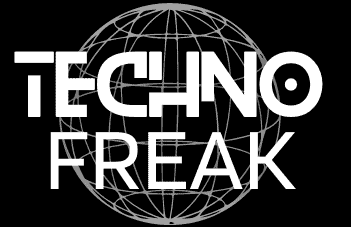Ratan Tata, the stalwart of the Indian business community, has had a profound impact on the growth and globalization of the Tata Group. His leadership and visionary outlook have not only expanded the conglomerate’s business empire but also significantly contributed to the social and technological landscape of India.
Business Expansion Ratan Tata’s tenure as Chairman of Tata Sons saw a series of strategic acquisitions that transformed the Tata Group into a global powerhouse. One of the most notable acquisitions was that of Tetley in 2000.
This move marked Tata Group’s first major foray into the global market, as Tetley was the second largest tea company in the world at the time. The acquisition boosted Tata Tea’s market presence and provided a platform for further global expansion.
In 2007, under Ratan Tata’s leadership, Tata Steel acquired Corus, a leading European steelmaker, for $12 billion. This acquisition made Tata Steel the fifth-largest steel producer in the world and significantly enhanced its global footprint. The deal was a testament to Ratan Tata’s strategic vision and ability to navigate complex international negotiations.

Perhaps one of the most highprofile acquisitions during Ratan Tata’s tenure was the purchase of the iconic British brand Jaguar and Land Rover (JLR) in 2008. The acquisition of JLR from Ford for $2.3 billion was initially met with skepticism, but it proved to be a masterstroke. Under Tata’s stewardship, JLR not only turned profitable but also emerged as a leading player in the luxury automobile market. This acquisition highlighted Ratan Tata’s knack for identifying undervalued assets and transforming them into profitable ventures.
Expansion of Tata Group Globally Ratan Tata’s strategic acquisitions were part of a broader vision to expand the Tata Group’s presence globally. He believed in the potential of Indian companies to compete on the international stage. Under his leadership, Tata Group companies expanded their operations to over 100 countries across six continents. This global expansion was not just limited to acquisitions but also included setting up greenfield projects and forming strategic alliances with global partners.
Tata Consultancy Services (TCS), the group’s IT services arm, is a prime example of this global expansion. TCS became one of the world’s largest IT services companies, serving clients across various industries and geographies. Ratan Tata’s emphasis on globalization helped Tata Group companies access new markets, diversify their revenue streams, and mitigate risks associated with regional economic fluctuations.
Innovations Ratan Tata’s tenure was marked by a relentless pursuit of innovation and technological advancements. One of his most ambitious projects was the launch of the Tata Nano in 2008. Billed as the world’s cheapest car, the Tata Nano was designed to provide an affordable transportation solution for the masses. Although the Nano did not achieve the commercial success that was initially anticipated, it showcased Ratan Tata’s commitment to innovation and his desire to address the needs of the common man.
Beyond the Nano, Ratan Tata championed numerous technological advancements within the Tata Group. He encouraged a culture of research and development, leading to the creation of cuttingedge products and services. Tata Motors, under his leadership, developed innovative vehicles that catered to diverse market segments, from commercial trucks to luxury cars.
Ratan Tata’s emphasis on technology was not limited to the automotive industry. He recognized the potential of the IT sector early on and invested heavily in TCS. Today, TCS is a global leader in IT services, thanks in large part to Ratan Tata’s vision and strategic investments in technology.
Philanthropy Ratan Tata’s contributions extend far beyond the business world. He is a staunch advocate for social responsibility and philanthropy. One of his most significant contributions is the establishment of Tata Trusts, which oversee the philanthropic initiatives of the Tata Group. Tata Trusts are among the oldest and most respected charitable organizations in India, supporting a wide range of causes, including education, healthcare, rural development, and social welfare.
Education has always been a priority for Ratan Tata. Under his leadership, Tata Trusts have funded numerous educational institutions and scholarship programs, providing access to quality education for underprivileged students. Ratan Tata’s commitment to education is also evident in his support for institutions like the Indian Institute of Science, the Tata Institute of Social Sciences, and Cornell University.
Healthcare is another area where Ratan Tata has made a significant impact. Tata Trusts have supported various healthcare initiatives, including the establishment of hospitals, funding for medical research, and programs to improve rural healthcare infrastructure. Ratan Tata’s philanthropic efforts have also focused on improving sanitation and access to clean drinking water in rural areas.

Conclusion Ratan Tata’s major achievements and milestones have left an enduring legacy on the global business landscape. His strategic vision, innovative mindset, and commitment to social responsibility have transformed the Tata Group into a global conglomerate with a diverse portfolio of businesses. From landmark acquisitions to pioneering innovations and philanthropic contributions, Ratan Tata’s leadership has had a profound impact on the Tata Group and the communities it serves.
As we reflect on Ratan Tata’s contributions, it is clear that his legacy extends beyond business success. His dedication to improving the lives of people through education, healthcare, and social welfare initiatives exemplifies the true spirit of leadership. Ratan Tata’s journey is a testament to the power of visionary thinking, ethical leadership, and a commitment to making a positive difference in the world.

